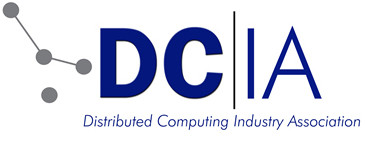In This Issue
- Obama: Cybersecurity
- Internet Privacy Rules
- HR: Small Biz at Risk
- Report from the CEO
- Internet Privacy Plan
- Cybersecurity Invest
- Verizon Cloud-Based
- LeaseWeb & NetApp
- Telefonica Brasil Up
- NetApp’s Data Fabric
- Cloud App Migration
- Innovation Drives IT
- IoT Edge Computing
- Geospatial Big Data
- Hadoop vs Spark?
- Brexit Cybersecurity
- Coming DCIA Events
Obama Says US Government Must Improve Cybersecurity
Excerpted from Reuters Report by Ayesha Rascoe, Angus Berwick, and Maria Vega Paul

US President Barack Obama said on Sunday that the US government has to improve its cybersecurity practices for the modern age of smartphones and other technology.
He also said that hackers had targeted the White House.
President Obama answered a reporter’s questions after meeting with Spain’s acting Prime Minister Mariano Rajoy at the Palacio de la Moncloa in Madrid, Spain on July 10th.
“I am concerned about it, I don’t think we have it perfect.”
“We have to do better, we have to learn from mistakes,” Obama told the news conference in Madrid.
“We know that we have had hackers in the White House,” he added.
Concerns have been raised about the security of government information after the head of the Federal Bureau of Investigation (FBI) said presidential nominee Hillary Clinton’s email servers may have been accessed by foreign actors when she was Secretary of State… Read More
Internet Privacy Rules under Senate Scrutiny
Excerpted from The Hill Report by Lydia Wheeler and Tim Devaney

Senators will meet in the coming week to discuss the Federal Communications Commission’s proposed privacy rules for broadband internet providers and the impact they could have on consumers and competition in the marketplace.
Senator John Thune (R-SD), Chairman of the Senate Commerce, Science, and Transportation Committee, called the Tuesday hearing to take a closer looks at the draft regulations, which bar companies from using customers’ data without first obtaining permission and create standards for how companies are to protect consumer data.
Under the draft rules, a customer would have to give permission unless the company needs the data to deliver services or market other broadband packages to that customer.
Companies would also be able to share information with affiliated companies to help them market other services unless the customer explicitly opts out.
The rules have received push back from industry groups, which argued that all internet providers and online services should be required to follow the same rules.
Google and Facebook are now under the Federal Trade Commission’s purview… Read More
House Hearing: Small Businesses at Risk for Cyber-Attacks
Excerpted from Associated Press Report by Joyce Rosenberg

Small businesses’ inability or failure to deal with their vulnerability to cyber-criminals puts them increasingly at risk for online attacks, witnesses told a congressional hearing last week.
Part of the problem is innocence or ignorance, and part is small businesses’ overall lack of financial and other resources, the witnesses said.
Fewer small and mid-sized businesses used software programs last year to make their internet and mobile sites more secure than in 2014, Jamil Jaffer, an adjunct law professor at George Mason University, told the House Small Business Committee on Thursday, citing an annual Cisco Systems study.
Although cyberattacks have been in the news more often, nearly a quarter of small and mid-sized companies don’t believe they’re significant targets for cybercriminals, Jaffer said.
Small businesses’ tendency to underestimate their vulnerability puts not only their operations at risk, but also those of larger companies to whom they supply goods or services, said Justin Zeefe, co-founder of Nisos Group, a cybersecurity company based in Washington, DC… Read More
Report from DCIA CEO Marty Lafferty
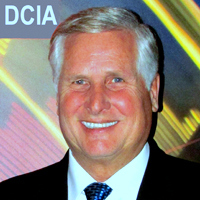
The White House this week announced new measures to strengthen the federal cybersecurity workforce through recruitment and retention efforts.
The government faces increasingly sophisticated and more-and-more persistent cyber threats posing strategic, economic, and security challenges.
This week’s actions comprise key elements of the Obama Administration’s Cybersecurity National Action Plan (CNAP), which calls for an investment of $62 million in 2017 to expand cybersecurity education across the nation.
Addressing today’s and tomorrow’s cyber threats, as it does in the private sector, requires bold new approaches to security in the digital age coupled with a significant investment in critical protection tools.
The federal government’s innovative four-part cyber workforce strategy incentivizes cybersecurity professionals to include accepting a public sector assignment during their careers.
It also provides competitive scholarships or full tuition for students through the CyberCorps Scholarship for Service program as well as grants to hire and retain cybersecurity professors, adopt cybersecurity core curricula, and strengthen overall cybersecurity education programs.
Agencies meanwhile, which in many cases have been asking for more security professionals, are being empowered to streamline hiring practices to more swiftly identify and attract new talent.
In addition, the Office of Personnel Management (OPM) will build cybersecurity career paths for current information security professionals working in government, including badging and credentialing programs, rotational assignments, and efforts to make current cyber employees subject matter experts in their field.
The strategy also will leverage the National Institute of Standards and Technology’s (NIST) National Initiative for Cybersecurity Education (NICE) with plans to hire 3,500 more IT security professionals before the year ends – more than doubling the number hired to date in FY 2016.
The changes will take time to implement, and the “workforce strategy’s long-term success will depend on the attention, innovation, and resources from all levels of government,” says the OPM. Share wisely, and take care.
An Internet Privacy Plan That Works for Everyone
Excerpted from NCTA’s Platform Blog

Almost everyone agrees that the internet is a phenomenal success that has changed our lives in many important and entertaining ways.
Superfast networks built and continually upgraded by internet service providers (ISPs) have provided consumers with an exciting platform to find just about any content or experience imaginable.
When taking a closer look at why the internet has thrived, privacy has been a critical issue.
For ISPs, privacy has been a top priority for more than two decades as these companies have worked hard to successfully preserve and protect the private data of consumers.
And just like everyone else in the internet ecosystem, ISPs and content developers have been governed by the Federal Trade Commission’s (FTC) privacy policies.
Under the FTC’s regime, which has resulted in some significant enforcement actions when violations occur, the internet has thrived under uniformity… Read More
EU Approves New Investment in Cybersecurity
Excerpted from The Verge Report by Jacob Kastrenakes

The European Commission signed an agreement today that’ll have member states funding and working together with private groups on cybersecurity.
The specifics are a little vague right now, but the gist is this: the EU has put together 450 million euros, which will be distributed in the coming years to businesses, universities, and other researchers who are interested in investigating pressing cybersecurity problems.
The commission says the measure is designed to “nurture cybersecurity industrial capabilities and innovation in the EU.”
The recently founded European Cyber Security Organization will work together with everyone from tech companies to local governments to determine where the funding should go.
The current plan is for the partnership to put out its first call for proposals in early 2017.
The commission expects that, throughout the course of this partnership, private sources will end up investing in cybersecurity “three times more” than the initial public contributions, for a total of up to 1.8 billion euros in new investment by 2020… Read More
Verizon Cloud Modernizes Champion Realty
Excerpted from Financial News Report by Gulli Arnason

Verizon enterprise solution’s virtual communications express service, powered by BroadSoft, has provided Berkshire Hathaway affiliate Champion Realty with a range of services to enhance productivity, communications, and collaborations for its workforce, the company said.
With Virtual Communications Express, a cloud IP PBX and mobile unified communication and collaboration alternative to on-premises telephony systems, Champion Realty is able to operate more efficiently across its eight branch offices and more than 250 sales associates.
Leveraging Verizon ´s service, Champion Realty is experiencing cost, operational and capabilities benefits, including access to a range of advanced communications services and minimal upfront capital investment.
Verizon Communications, headquartered in New York City, generated nearly $132 billion in 2015 revenues.
Verizon provides 112.6 million retail connections nationwide.
The company also provides communications and entertainment services over a fiber-optic network… Read More
LeaseWeb Accelerates Delivery with NetApp Flash
Excerpted from MyHost News Report

“LeaseWeb can offer a level of service that often only large enterprises can afford to deploy.”
“With our current public cloud offering built on NetApp, we can take the extra step that we need to satisfy the customer’s needs,” said Robert van der Meulen, Cloud Manager at LeaseWeb.
“The continuous operation, stability, and great performance that our current infrastructure offers is a winning combination.”
LeaseWeb, one of the world’s largest hosting brands, offers a wide variety of cloud hosting solutions, bare metal servers, CDN services, and more.
The company operates with the customer at the heart of its operations.
As part of its public cloud strategy, LeaseWeb wanted to accelerate infrastructure delivery to enable customers to place their mission-critical workloads in the cloud.
LeaseWeb needed an enterprise-class solution offering low latency, reliability, constant throughput, zero downtime, and minimal administrative overhead… Read More
Telefonica Brasil Digital Revenue Outpaces Overall Growth
Excerpted from Reuters Report by Ana Mano

Telefonica Brasil, the country’s largest telecom operator, sees revenue from digital services growing faster than overall sales as the company moves away from a model based on offering voice and internet connection.
The Brazilian unit of Spain’s Telefonica says revenue from digital services including video streaming and cloud storage already represented 1.9 billion reais ($569.24 million) in 2015, or about 5 percent of net revenue.
That reflects rapid growth for a segment that “started from scratch” less than three years ago, according to Ricardo Sanfelice, the Division’s recently appointed Vice President.
If trends continue, voice revenue should continue shrinking as a share of revenue from around half currently to about a quarter of sales in five years, Sanfelice told Reuters in a telephone interview.
Digital services at Telefonica Brasil grew 15 percent last year, he said, outpacing overall revenue growth of 5 percent.
Although he declined to give firm forecasts, Sanfelice said “there is no reason” for digital services not to keep expanding at the same pace… Read More
NetApp’s Data Fabric and Strategic Solutions Importance
Excerpted from Market Realist Report by Adam Rogers
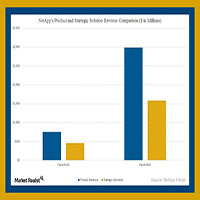
NetApp believes that the data fabric is the future for data management.
The combination of services, connectivity, and endpoints is a fabric.
NetApp has a number of data fabric offerings, including Clustered Data ONTAP, SolidFire, and StorageGRID systems. Data fabric helps to connect the end points of these products, which help enterprises to communicate effectively.
According to a research paper by NetApp, data fabric “enables customers to respond and innovate more quickly because data is free to be accessed where it is needed most.”
It enables enterprises to focus on revenue growth, customer experiences, and other service and product offerings.
NetApp management has stated that the company is focused on its data fabric strategy and strategic solutions. These form the foundation of how NetApp enables customer success in the data-powered digital era.
In fiscal 4Q16, the strategic solutions segment accounted for 61% of the net product revenue. In fiscal 2016, strategic solutions accounted for 53% of the net product revenue and grew 21% year-over-year… Read More
How to Ensure Successful Application Migration to the Cloud
Excerpted from Computer Business Review Report by Ambrose McNevin
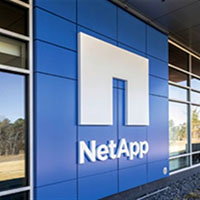
CBR spoke with NetApp chief technologist about how to ensure successful cloud migration. CBR: What are the key considerations from NetApp’s view for migrating apps to the cloud?
Grant Caley, Chief Technologist, NetApp: The first thing is to understand what you want to migrate to the cloud.
Some companies are on a strategy to move everything to the cloud and that’s a bold strategy.
Because if you are going to do that you have to consider those applications which are cloud ready and those which are legacy and which may not be. Among the considerations are which are going to be cost effective to move to the cloud.
Which applications may have security and risk issues associated with them. Are there compliance considerations for example in the finance industry.
These are just some and there are many different aspects to consider when moving to the cloud. CBR: Are we talking about application complexity, age, use?
GC: You can pretty much define that any legacy app in use today is probably not cloud ready in some aspect… Read More
Innovation Will Drive Growing IT Budgets and Staff
Excerpted from Baseline Magazine Report by Dennis McCafferty

IT budgets and staff are expected to grow this year, according to a recent survey from the Hackett Group.
The accompanying report, “The CIO Agenda: Balancing Risk, Cost and Innovation,” explains that innovation is driving much of the spending increases, as many executive leaders consider that their top strategic priority.
To achieve business objectives, these leaders said, IT must have the resources required to improve processes, boost analytics-focused capabilities and drive a digital transformation.
Meanwhile, the tech department also needs to help their organization reduce risks, especially those related to IT issues such as network breaches.
“Technology’s strategic role in the business is dramatically expanding,” said Scott Holland, principal and global IT advisory practice leader for the Hackett Group.
“IT must truly transform itself to be effective in its new role, as it is being asked to develop and implement digital business transformation initiatives that dramatically change the way companies go to market… Read More
Edge Computing In the IoT: An Analytics Model
Excerpted from Business Insider Report by Sarah Kocianski
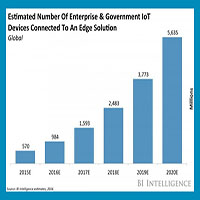
For businesses, the most important benefit of the IoT will be the data generated by billions of new smart sensors and devices.
The “Internet of Everything” – all of the people and things connected to the internet – will generate 507.5 zettabytes (1 zettabyte = 1 trillion gigabytes) of data by 2019, according to Cisco.
Managing, sifting through, and analyzing so much data will be a massive challenge for organizations.
But that data analysis will be essential if IoT initiatives are going to provide the insights to drive greater productivity and revenues.
Right now, most of this data management and analysis is performed in the cloud or enterprise data centers.
However, several IoT technology providers are promoting a different model called edge computing, or “fog computing,” for the IoT.
In an edge computing model, sensors and connected devices transmit data to a nearby edge computing device… Read More
Geospatial Big Data Processing with Distributed Computing
Excerpted from PeerJ Preprints Report by Angela Olasz and Binh Nguyen Thai

In recent years, distributed computing has reached many areas of computer science including geographic and remote sensing information systems.
However, distributed data processing solutions have primarily been focused on processing simple structured documents, rather than complex geospatial data.
Hence, migrating current algorithms and data management to a distributed processing environment may require a great deal of effort.
In data processing, different aspects are to be considered such as speed, precision or timeliness.
All depending on data types and processing methods.
Available data volume and variety evolving as never before which instantly exceeding the capabilities of traditional algorithm performance and hardware environment in the aspect of data management and computation.
Augmented efficiency is required to exploit the available information derived from Geospatial Big Data… Read More
Hadoop vs Spark: Which is Right for Your Business?
Excerpted from Report by Scott Carey
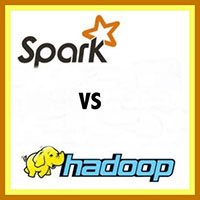
As companies work with more and more data, choosing between the open source big data frameworks Hadoop and Spark is increasingly important.
We break down the pros and cons of Hadoop vs Spark, the vendors, customers and general uses of each.
First, it’s important to note that Hadoop and Spark are broadly different technologies, with different use cases.
The Apache Software Foundation, from which both technologies emerged, even places the two in different categories: Hadoop is a database, Spark is a big data tool.
In Apache’s own words, Hadoop is a “distributed computing platform”: “A framework that allows for the distributed processing of large data sets across clusters of computers using simple programming models.
It is designed to scale up from single servers to thousands of machines, each offering local computation and storage.
Rather than rely on hardware to deliver high-availability, the library itself is designed to detect and handle failures at the application layer… Read More
Will Brexit Hurt International Cybersecurity?
Excerpted from Slashdot Report

The Brexit shock continues to reverberate throughout the global economic and policy worlds.
Andrea Limbago from the security company Endgame responds to a poll showing that most security professionals have concerns about Brexit:
Will it weaken cybersecurity because of additional bureaucratic hurdles to information sharing with the EU, as well limited cross-national collaboration in fighting cyber-criminals?
There is also concern about the possibility of a brain drain – in-demand security talent pool fleeing the UK – which could increasingly impact security and data protection.
Limbago suggests tech workers in Britain’s financial sector may feel the impact, “With Bitcoin surging and the pound dropping, London’s role as the financial hub is now threatened thanks to the Brexit, the rise of digital currencies, and the EU’s move toward greater digital integration.”
And there’s also the possibility of “a push for digital sovereignty and greater national control over the internet… Read More
Coming Events of Interest
Industry of Things World Europe — September 19th-20th in Berlin, Germany. IoT business models, new IoT markets and strategies, product lifecycle management, next generation data handling and value assessment, IoT organizational impacts, and IoT security issues.
EuroCloud Forum – October 5th-6th in Bucharest, Romania. The seventh annual EuroCloud Congress will be held for the first time in Romania. With the theme “Creating New Frontiers in European Cloud,” it will be the sector’s largest forum on the future of cloud in Europe.
Security of Things World USA — November 3rd-4th in San Diego, CA. The newest event in the DCIA’s partnership with weCONECT Group has been designed to help you find pragmatic solutions to the most common security threats facing the IoT.
Government Video Expo — December 6th-8th in Washington, DC. GVE is the East Coast’s largest technology event for broadcast and video professionals, featuring a full exhibit floor, numerous training options, free seminars, keynotes, panel discussions, networking opportunities, and more.
